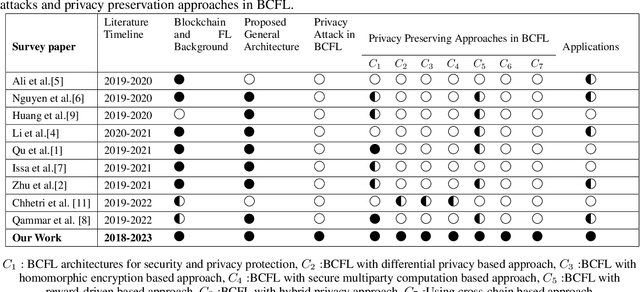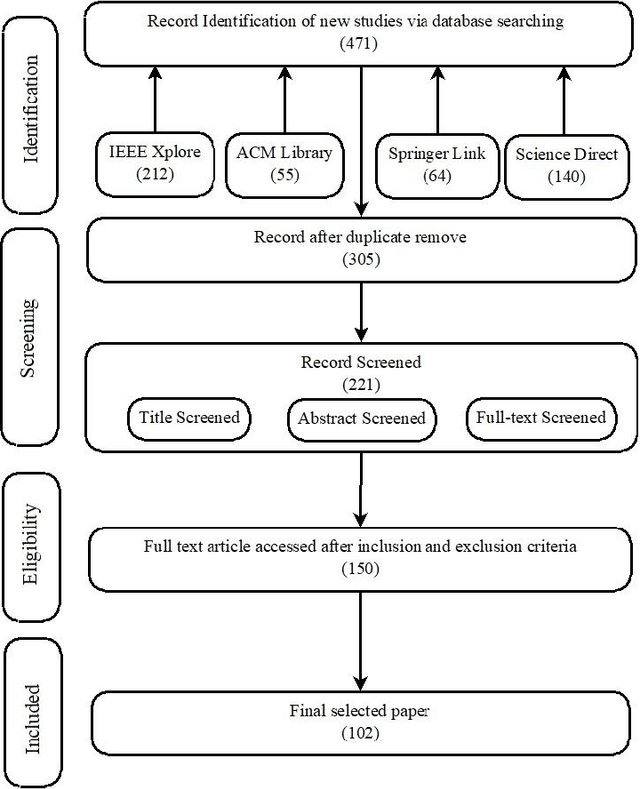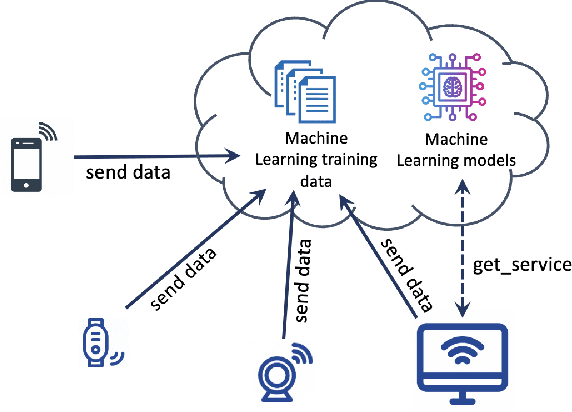Rafidha Rehiman K. A.
WeiDetect: Weibull Distribution-Based Defense against Poisoning Attacks in Federated Learning for Network Intrusion Detection Systems
Apr 06, 2025Abstract:In the era of data expansion, ensuring data privacy has become increasingly critical, posing significant challenges to traditional AI-based applications. In addition, the increasing adoption of IoT devices has introduced significant cybersecurity challenges, making traditional Network Intrusion Detection Systems (NIDS) less effective against evolving threats, and privacy concerns and regulatory restrictions limit their deployment. Federated Learning (FL) has emerged as a promising solution, allowing decentralized model training while maintaining data privacy to solve these issues. However, despite implementing privacy-preserving technologies, FL systems remain vulnerable to adversarial attacks. Furthermore, data distribution among clients is not heterogeneous in the FL scenario. We propose WeiDetect, a two-phase, server-side defense mechanism for FL-based NIDS that detects malicious participants to address these challenges. In the first phase, local models are evaluated using a validation dataset to generate validation scores. These scores are then analyzed using a Weibull distribution, identifying and removing malicious models. We conducted experiments to evaluate the effectiveness of our approach in diverse attack settings. Our evaluation included two popular datasets, CIC-Darknet2020 and CSE-CIC-IDS2018, tested under non-IID data distributions. Our findings highlight that WeiDetect outperforms state-of-the-art defense approaches, improving higher target class recall up to 70% and enhancing the global model's F1 score by 1% to 14%.
IntellBot: Retrieval Augmented LLM Chatbot for Cyber Threat Knowledge Delivery
Nov 08, 2024Abstract:In the rapidly evolving landscape of cyber security, intelligent chatbots are gaining prominence. Artificial Intelligence, Machine Learning, and Natural Language Processing empower these chatbots to handle user inquiries and deliver threat intelligence. This helps cyber security knowledge readily available to both professionals and the public. Traditional rule-based chatbots often lack flexibility and struggle to adapt to user interactions. In contrast, Large Language Model-based chatbots offer contextually relevant information across multiple domains and adapt to evolving conversational contexts. In this work, we develop IntellBot, an advanced cyber security Chatbot built on top of cutting-edge technologies like Large Language Models and Langchain alongside a Retrieval-Augmented Generation model to deliver superior capabilities. This chatbot gathers information from diverse data sources to create a comprehensive knowledge base covering known vulnerabilities, recent cyber attacks, and emerging threats. It delivers tailored responses, serving as a primary hub for cyber security insights. By providing instant access to relevant information and resources, this IntellBot enhances threat intelligence, incident response, and overall security posture, saving time and empowering users with knowledge of cyber security best practices. Moreover, we analyzed the performance of our copilot using a two-stage evaluation strategy. We achieved BERT score above 0.8 by indirect approach and a cosine similarity score ranging from 0.8 to 1, which affirms the accuracy of our copilot. Additionally, we utilized RAGAS to evaluate the RAG model, and all evaluation metrics consistently produced scores above 0.77, highlighting the efficacy of our system.
Privacy-Preserving in Blockchain-based Federated Learning Systems
Jan 07, 2024



Abstract:Federated Learning (FL) has recently arisen as a revolutionary approach to collaborative training Machine Learning models. According to this novel framework, multiple participants train a global model collaboratively, coordinating with a central aggregator without sharing their local data. As FL gains popularity in diverse domains, security, and privacy concerns arise due to the distributed nature of this solution. Therefore, integrating this strategy with Blockchain technology has been consolidated as a preferred choice to ensure the privacy and security of participants. This paper explores the research efforts carried out by the scientific community to define privacy solutions in scenarios adopting Blockchain-Enabled FL. It comprehensively summarizes the background related to FL and Blockchain, evaluates existing architectures for their integration, and the primary attacks and possible countermeasures to guarantee privacy in this setting. Finally, it reviews the main application scenarios where Blockchain-Enabled FL approaches have been proficiently applied. This survey can help academia and industry practitioners understand which theories and techniques exist to improve the performance of FL through Blockchain to preserve privacy and which are the main challenges and future directions in this novel and still under-explored context. We believe this work provides a novel contribution respect to the previous surveys and is a valuable tool to explore the current landscape, understand perspectives, and pave the way for advancements or improvements in this amalgamation of Blockchain and Federated Learning.
 Add to Chrome
Add to Chrome Add to Firefox
Add to Firefox Add to Edge
Add to Edge